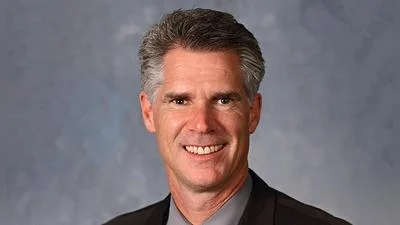Keystone XL Pipeline | Twitter.com/TransCanada
Keystone XL Pipeline | Twitter.com/TransCanada
During his first week in office, President Donald Trump breathed new life into the long-stalled Keystone XL Pipeline by signing an executive order to advance the project, a roughly 1,100-mile crude oil pipeline that would connect oil production in Alberta, Canada, to refiners in the U.S.
Stanford Levin, emeritus professor of economics at Southern Illinois University-Edwardsville, said the pipeline is likely to bring new economic activity to Illinois.
“The existing Keystone pipeline transports oil from Canada to the Wood River (Illinois) refinery and to the tank farms and pipeline hub in Patoka," Levin told SW Illinois News. "This has created high-paying jobs and greatly benefited these communities.”
Levin expects the Keystone XL pipeline extension to “allow for the preservation and expansion of the economic activity created by the Keystone pipeline in Illinois.”
In a recent Chicago Tribune op-ed, Levin argued that the pipeline is environmentally sound, writing, "Pipeline transportation for oil is safer and expected to be better for the environment than the alternative, which is usually rail transport."
Keith Pekau, a U.S. Air Force veteran and chairman of Illinois Vets4Energy, shares Levin's enthusiasm for the project.
"When's the last time you had the business community and Big Labor on the same page? That's exactly what's happened with Keystone because it's good for American jobs," Pekau told SW Illinois News. "But even more importantly, it's also good for American security. It will mean more energy produced here in North America. And more energy being refined right here in America. And that means less reliance on getting our energy from regimes that do not share American values."
Vets4Energy is a national coalition of veterans advocating for policies increasing the country's energy independence. This is in contrast to a number of environmental groups that oppose the Keystone XL Pipeline.
Levin, however, argued that opponents of the project have "fatally flawed" ideas.
“The first is that somehow the Canadian oil will stay in the ground if the Keystone XL pipeline is not completed, with favorable environmental consequences, but this is not the case,” Levin said. If the oil is not sold to the U.S., Canadian oil will be purchased from buyers in Asia, Levin explained. Consequently, “the U.S. will import more oil from Venezuela and the Middle East.”
Added Levin, “The second argument is that somehow if the Keystone XL pipeline is not completed, the lost energy will be replaced by wind and solar power.” Levin said that is “wishful thinking” and that although renewable energy sources are increasing, “that cannot replace the oil that would be supplied by the Keystone XL pipeline."
The project surpassed another milestone last month when the U.S. State Department issued a construction permit to TransCanada Corp., the company behind the Keystone XL.
Rep. Mike Bost (R-IL) lauded the State Department's announcement.
“This is a win for American jobs, American national security, and the American consumer,” Bost said. “This project is estimated to create tens of thousands of U.S. jobs in the construction, manufacturing, transportation and services industries, all of which are important to the economy of Southern Illinois. The pipeline will also decrease our dependency on Middle Eastern oil and help lower prices at the pump.”





 Alerts Sign-up
Alerts Sign-up